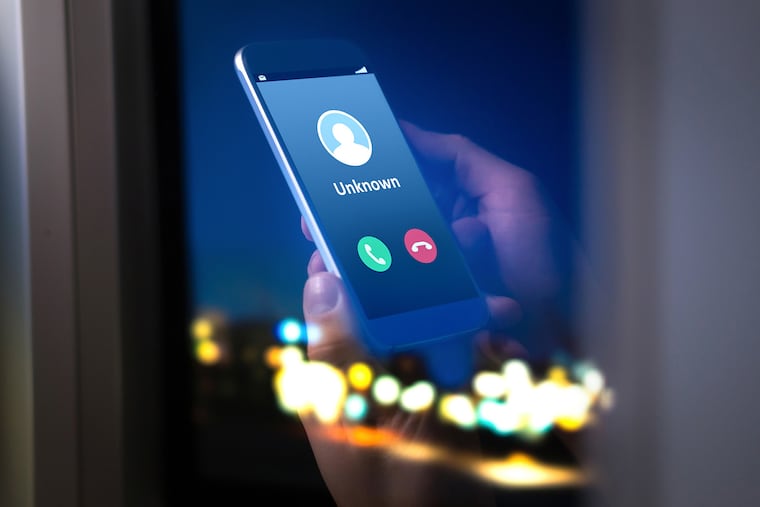Comcast, AT&T take steps to combat scam calls
The companies tested a system that confirms incoming calls are authentic and not from fraudsters. The successful authentication of calls between different networks is believed to be an industry first, the companies said in a news release.

Comcast and AT&T said Wednesday that they successfully verified that calls between two separate networks were authentic as they work to combat the surge in scam calls.
The successful test of call authentication technology between different networks is believed to be an industry first, the companies said.
The rapid rise of robocalls has been driven in part by caller ID “spoofing," in which scammers place calls that appear to come from local numbers or legitimate businesses. Nearly half of all mobile calls this year will come from scammers, according to First Orion, an Arkansas-based call management company.
The phone industry plans to implement technology that lets consumers know that incoming calls are actually from the owner of the number listed on a caller ID.
AT&T and Comcast said that they expect to authenticate customer calls later this year. T-Mobile has already deployed the technology on three devices, though it verifies calls only within the T-Mobile network.
Federal Communications Commission Chairman Ajit Pai demanded in November that the phone industry launch the system no later than this year so that consumers can trust their caller IDs again.
AT&T and Comcast said their successful test, conducted March 5, was done between the AT&T Phone digital home service and Comcast’s Xfinity Voice home phone service — not in a lab or restricted to special equipment. The telecommunication giants said major service providers will conduct similar tests with each other’s systems over the coming months.
“While authentication won’t solve the problem of unwanted robocalls by itself, it is a key step toward giving customers greater confidence and control over the calls they receive,” the companies said in a statement.
Jim McEachern, chief technologist at the Alliance for Telecommunications Industry Solutions, said the successful test was a significant step. The industry group has been working with phone companies to implement the technology, called STIR/SHAKEN, which stands for the Secure Telephone Identity Revisited (STIR) and for Signature-based Handling of Asserted information using toKENs (SHAKEN) and is a protocol for authenticating phone calls.
“We’ve been saying for a long time that things are on track. This is progressing. It’s a complex system," McEachern said. “This is really exciting because this is now some visible proof that people can see that a lot of work is happening.”
An ongoing debate within the industry is whether to show consumers that calls are verified with, for example, a Twitter-like check mark, McEachern said. That would show customers that carriers are addressing the scam call surge, but it could also give consumers a false sense of security, he said.
“If you give it to the consumer and you show them the green check mark, well, bad guys can get a phone and make calls from a verified phone,” McEachern said. “It doesn’t mean [the call] is good. It means it’s verified. Will the average consumer understand that nuance?”
In January, T-Mobile announced that it was the first carrier to implement the call authentication system. The technology is currently available on its network for customers with Samsung Galaxy S9, Galaxy S9+, and Note9 phones.
The carrier plans to deploy its Caller Verified technology on more devices this year, starting with the Galaxy S10e, Galaxy S10, Galaxy S10+, the LG G8 ThinQ, and LG Aristo, a T-Mobile spokesperson said.
T-Mobile customers using those devices will see “Caller Verified” on calls made to them from other customers on the T-Mobile network. Once other wireless providers implement STIR/SHAKEN, Caller Verified will work on calls made across networks, T-Mobile said last week.
Americans received 4.9 billion robocalls in February, according to YouMail, a robocall blocking application. That’s slightly down from the 5.1 billion robocalls placed in January, but a sharp increase from the roughly three billion robocalls placed this time last year. Those figures include robocalls from both scammers and legitimate businesses or entities.